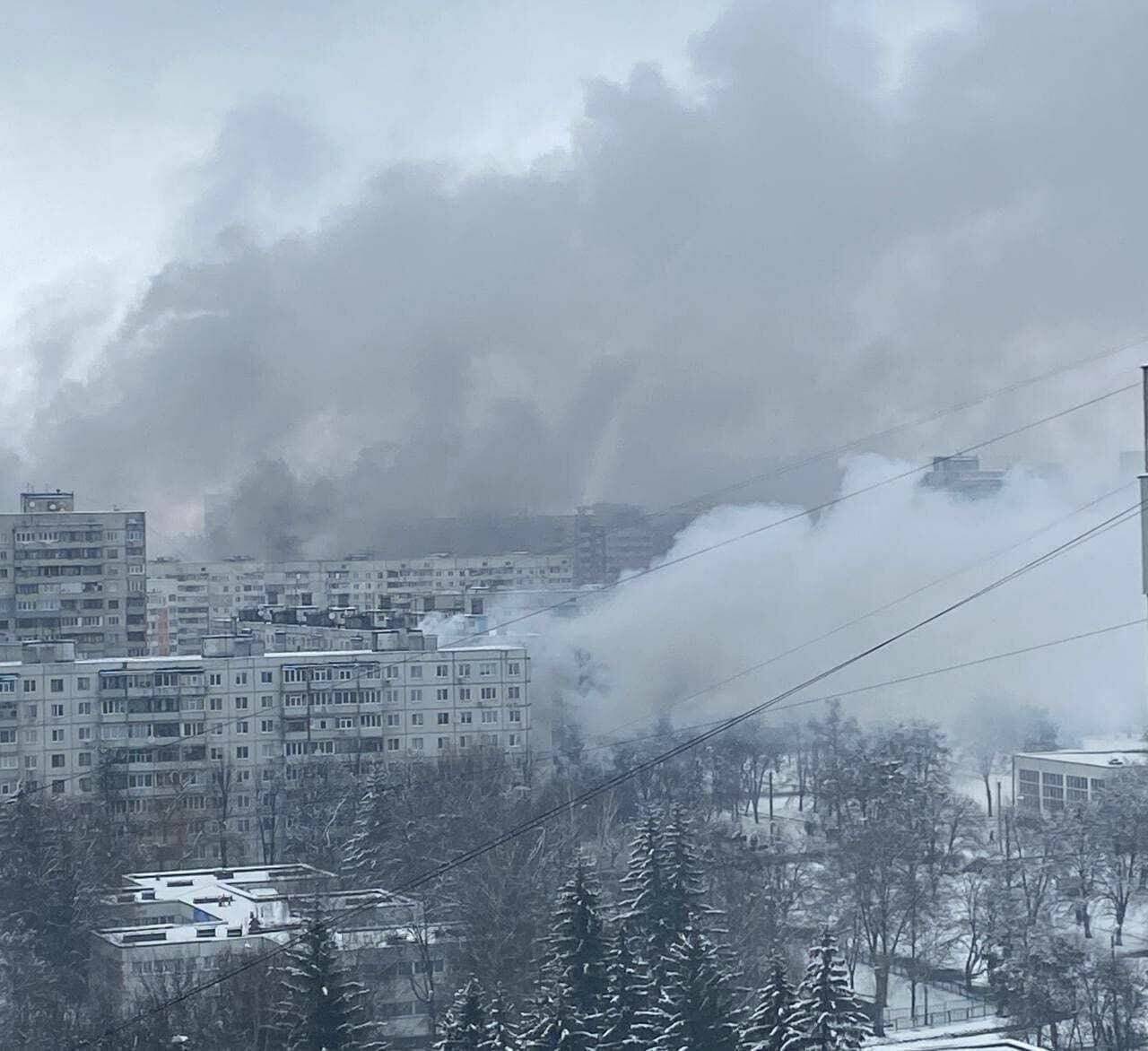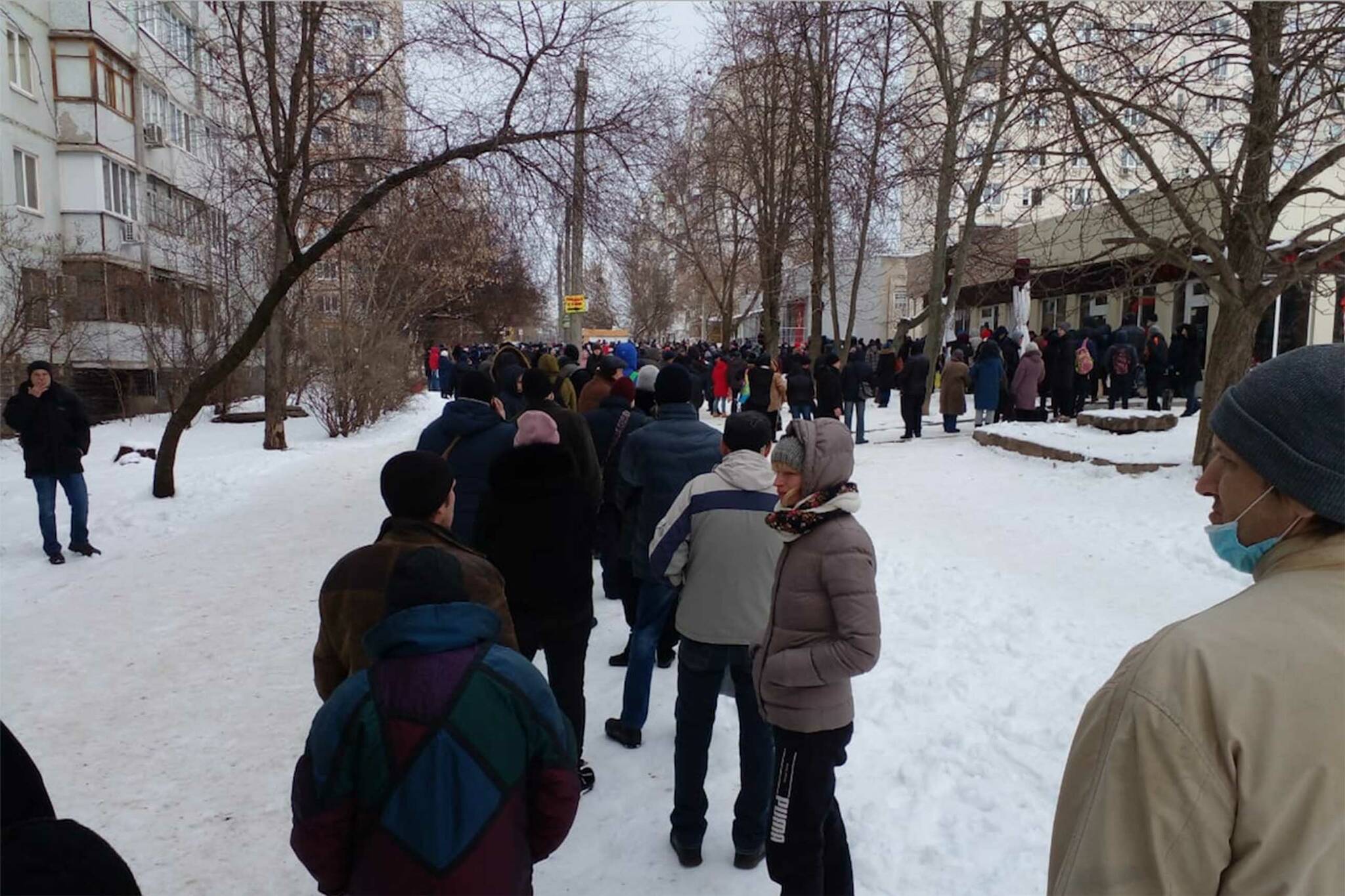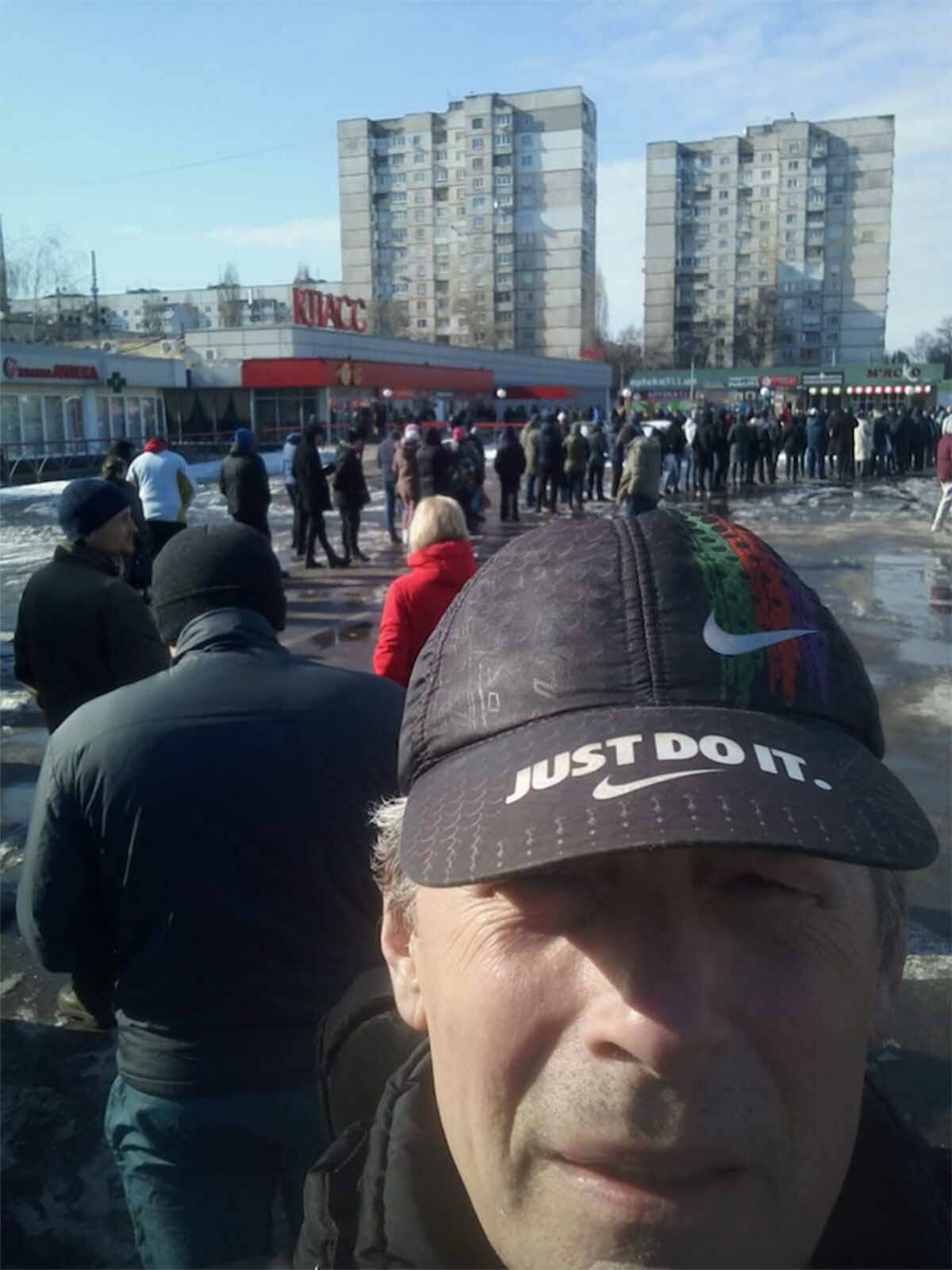Kharkiv is half a world away, but every morning Olena Straner wakes up in Mission dreading the explosions. She’s paralyzed by her phone, glued to it, anxiously awaiting an update that her family is still alive.
The home she was raised in, up 15 floors of an old Soviet-style concrete apartment building, has become a deathtrap – her father, mother and grandmother imprisoned by disability or circumstance.
“My heart is really breaking,” Straner said.
Kharkiv is Ukraine’s second largest city and home to over 1.4 million people. It lies on the northeastern edge of the country and has been encircled and besieged by the Russian forces since March 1.
RELATED: ‘Undisguised terror’: Russia’s Kharkiv strike chills Ukraine
Fierce fighting and near constant shelling is wreaking havoc, killing at least 170 civilians as of March 8, devastating the downtown core and levelling entire blocks, according to international reports.
Straner said an unexploded Russian missile is sticking out the ground only a block away from her family’s apartment building. Many Ukrainians are spending their nights in bomb shelters or basements, but Staner said that is not an option for her loved ones.
Their apartment elevator is broken, and her 84-year-old grandmother cannot make the trip up and down very frequently. Her mother has health issues and would not be able to flee the area. Her father is 58, two years shy of being ineligible for the draft, forcing him to stay.
Running water has not worked for days, Straner said. Her dad treks 30 minutes to and from a pond to draw water into buckets, exposing himself to shelling, according to Straner’s husband, Helmut.
He said brave municipal workers are up on booms everday to restore the electricity knocked out by explosions at night, and drinking water is being delivered on trucks daily.
“Who knows whether that truck will show up tomorrow?” Helmut said.
Straner, 35, left Kharkiv when she was 22-years-old, after graduating as an engineer from Kharkiv’s National Aerospace University. She still remembers the band Queen performing to 350,000 Ukrainians in the city centre “Freedom Square.”
An administrative building in Freedom Square was one of the first to be struck by missiles in Kharkiv. Other cultural sites have not been spared: an opera house was bombed, shrapnel ripped through a 300-year old Orthodox church, universities of arts and culture have all be struck.
“Kharkiv, my city, is 368 years old. It’s a beautiful, beautiful city,” Straner said. “There’s over 35 universities and secondary education facilities, there’s multiple scientific facilities, there’s hundreds of schools for kids, there’s hospitals.”
She said that it’s hard to watch the city of her memories turn to rubble.
Helmut said Straner broke down crying in a local Mission bakery after she was offered a free sample of warm bread. She told him it sent her flashbacks of shopping with her grandparents at bakeries in Kharkiv as a child – happier times.
“She’s incredibly strong on the outside … she’s not showing it, but she’s frustrated, she’s angry and she’s scared,” Helmut said. “She couldn’t hold it any longer. The floodgates open.”
The Russian embassy in Canada released a statement on March 1 stating that only military targets were being struck with missles, and that Ukrainian forces were deploying in civilian infrastructure like residential courtyards, hospitals, schools and kindergartens to use human populations as human shields.
The statement said “Goebbels-style Western propaganda” was predictably trying to discredit Russia, and Canadians cannot trust it.
Straner when she read the statement it made her stomach turn.
“A maternity hospital has been destroyed … A girl delivering food to an animal shelter was shelled and killed the other day, people trying to feed zoo animals were shelled,” she said. “There is no way that these are strategic military targets.”
Both Straner and her husband have already seen disinformation being spread on social media about the invasion, and they want to encourage all Canadians to think critically about where their information is coming from.
“We think sometimes we know the truth,” Straner said. “Social media sources are unreliable.”
RELATED: Missionites scramble to support Ukrainian refugees
@portmoodypigeon
patrick.penner@missioncityrecord.com
Like us on Facebook and follow us on Twitter.



